Οι νομοθετικοί προβληματισμοί του Εύδοξου
Ενότητα:
Άρθρα του περιοδικού "Φιλοσοφία"
Χρονολογία έκδοσης περιοδικού
2003
Περισσότερα...
Τύπος
Επετηρίδα
Συγγραφέας
Πολυκάρπου , Χριστόφορος Ν.
Περισσότερα...
Τίτλος άρθρου/ανακοίνωσης
Οι νομοθετικοί προβληματισμοί του Εύδοξου
Γλώσσα: Ελληνικά, Νέα (1453-)
Θεματική ενότητα άρθρου/ανακοίνωσης
Ιστορία της Φιλοσοφίας
Γλώσσα άρθρου
Ελληνικά - Νέα (1453-)
Αγγλικά
Περίληψη άρθρου
According to Diogenes Laertius, who drew on Hermippus, Eudoxus became famous throughout Greece for his legislation at Cnidus. In all probability, Phanocritus' lost work On Eudoxus was providing a clue regarding the purport of the Eudoxean legislation. After his return to Cnidus, Eudoxus was repaid with great honours not for drawing up his legislation but for being an illustrious professor of medicine. To our mind, the contents of Eudoxus' Laws were known solely through Aristotle' s quotations in his Constitution of the Cnidians. The use of Aristotle as the skeleton for a history of Eudoxus' legislative activity passed away gradually in Hermippus' time. As a matter of fact, it seems impossible to demonstrate that Eudoxus' legislative activity was relevant to Plato' s political views. Moreover, it is important to notice that there were no distinct differences between the Eudoxean theory of distributive justice and the Aristotelian one. On the other hand, we must dismiss the idea that Colotes was the first philosopher to find fault with Eudoxus' legal rules. Furthermore, we think that Diogenes Laertius never implied that Eudoxus' visit to Mausolus had been linked with political changes at Cnidus. This being so, it stands to reason that Eudoxus' legislative activity did not have anything to do with the founding of the New Cnidus. Moreover, it seems reasonable to infer that Theodoretus' reference to the Eudoxean lawgiving at Miletus is due to a clerical error. The order of events in the life of Eudoxus suggests that the Eudoxean lawgiving at Cnidus took place about the year 354 B.C.. In our opinion, one may fairly assume that the Eudoxean legislation reconciled in one system the functions of all groups in the social order. In point of fact, Eudoxus' legislative activity contributed to the efficient system of government based on the principle of harmony. Furthermore, it deserves to be noted that Eudoxus concerned himself with the early constitutional history of the city states of Greece. Being chiefly influenced by Archytas and Philolaus, Eudoxus asserted that no sharp distinction can be drawn between law and morality.
Λέξεις -κλειδιά
Εύδοξος
Νόμος
Creative Commons
Αναφορά Δημιουργού - Μη Εμπορική Χρήση - Παρόμοια Διανομή 4.0 Διεθνές - CC BY-NC-SA

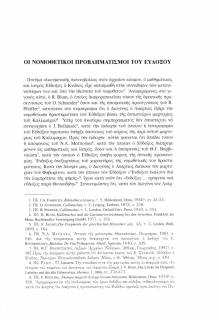
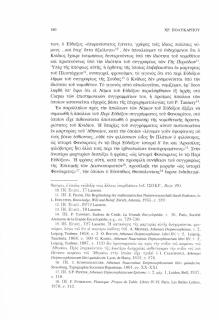
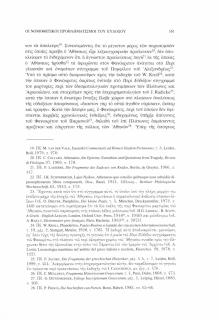
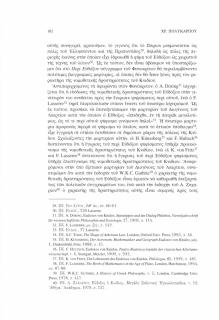
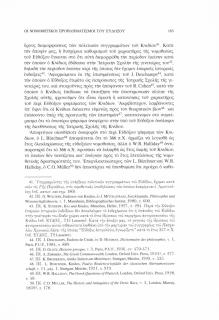
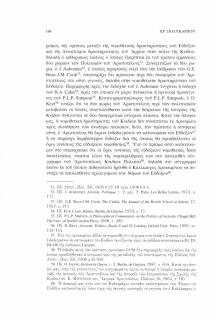
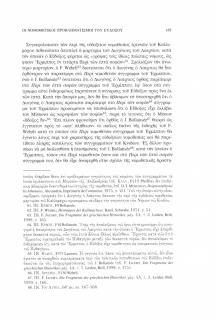
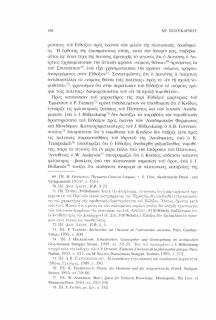
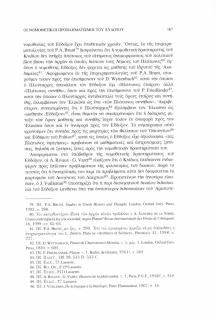
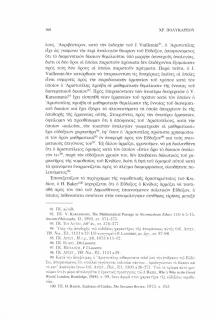
 Ξεφύλλισμα pdf
Ξεφύλλισμα pdf